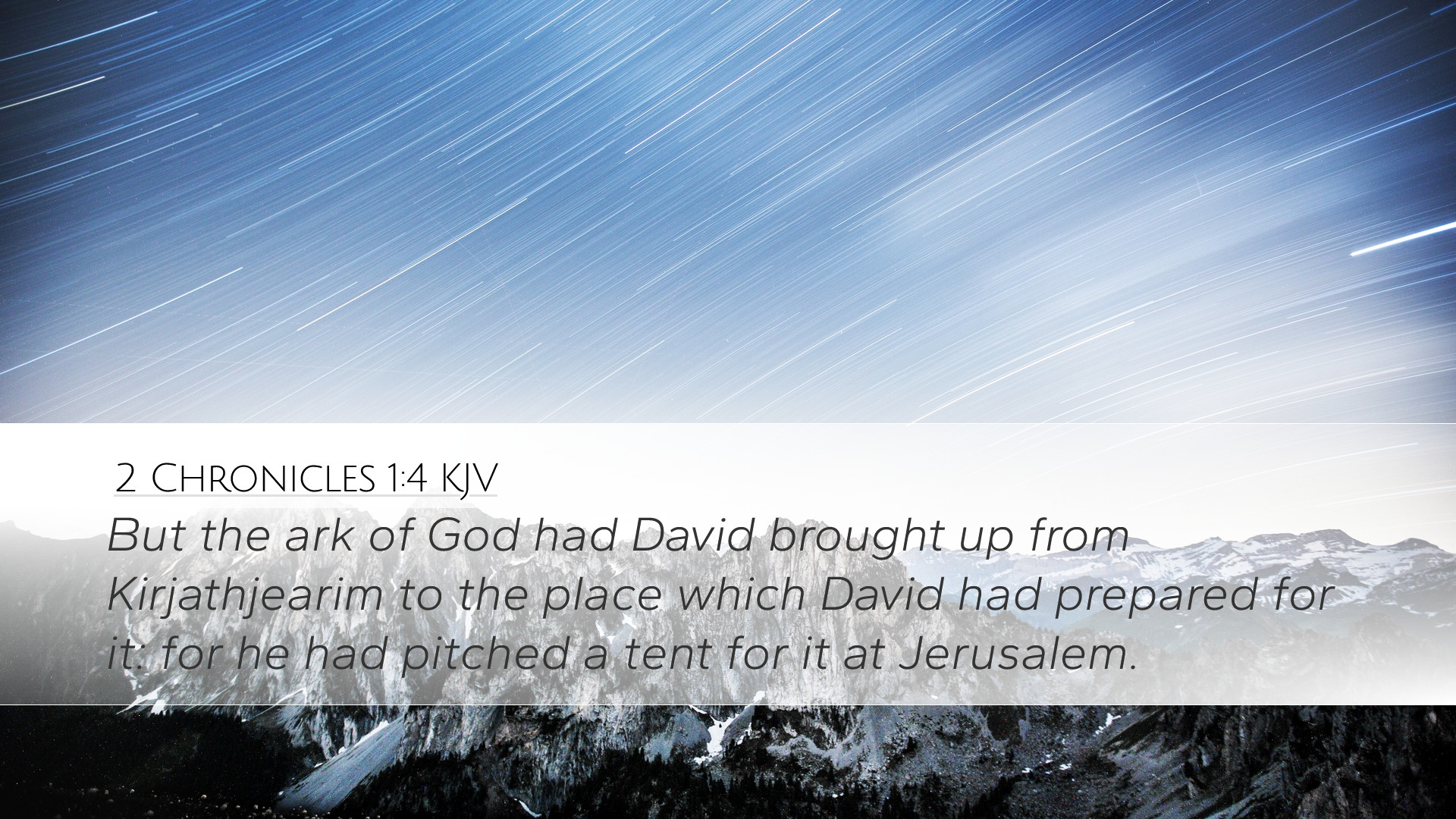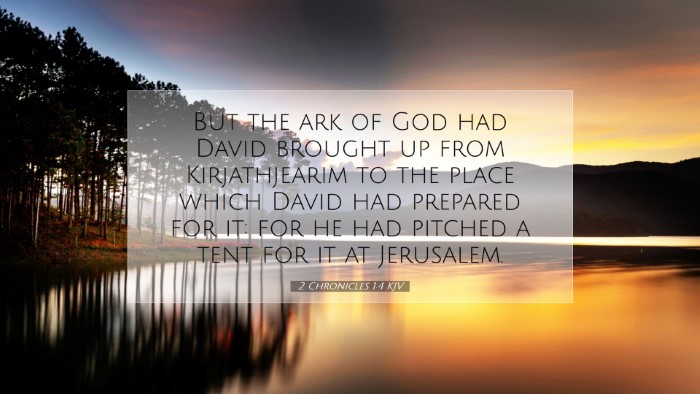2 Chronicles 1:4 Commentary
Bible Verse: "But the tabernacle of the Lord, which Moses made in the wilderness, and the altar of the burnt offering, were at that season in the high place at Gibeon."
Introduction
The verse 2 Chronicles 1:4 is a pivotal moment in the transition of worship practices from the wilderness tabernacle to the more established forms seen in the temple that Solomon would build. This commentary synthesizes insights from respected public domain scholars, including Matthew Henry, Albert Barnes, and Adam Clarke, exploring the implications of Solomon's actions and the significance of the tabernacle in Israel's history.
Context and Setting
The context of 2 Chronicles 1 is situated within the early reign of King Solomon. After David's death, Solomon ascends the throne of Israel, inheriting a unified nation but also a profound obligation to fulfill the promise of God to establish a dwelling place. The verse highlights a significant historical marker—where the tabernacle, made by Moses during the Exodus, was located and the importance of worship prior to the temple's construction.
Analysis of Key Elements
1. The Tabernacle of the Lord
Matthew Henry: Henry emphasizes the tabernacle's significance as a divine dwelling place, an earthly representation of God's presence among His people. It was here that the rituals prescribed in the Law were performed, allowing the Israelites to maintain a relationship with God through sacrifice and worship.
- Emphasis on Holiness: The holy nature of the tabernacle required careful adherence to rites, showcasing God’s holiness and Israel's need for atonement.
- Symbolism: The tabernacle symbolized God's guidance in the wilderness, and its continued significance points to a deeper relationship that God desires with His people.
2. The Altar of Burnt Offering
Albert Barnes: Barnes draws attention to the use of the altar for sacrifices. It symbolizes the necessity of atonement for sin and the means by which Israel could approach their holy God.
- Significance of Sacrifice: The burnt offerings represented complete surrender to God, and thus it was essential for Israel as they sought God's favor.
- Continuity of Worship: The verse illustrates the continuity of worship after transitioning from the tabernacle to the temple, emphasizing the importance of sacrificial systems in approaching God.
3. The High Place at Gibeon
Adam Clarke: Clarke notes that Gibeon was an important site for worship even before Solomon, a high place where sacrifices were made. The choice of Gibeon provides a historical and theological context for God's presence among His people.
- Geographical Significance: Gibeon's location as a high place indicates its historical significance as a site for worship, illustrating the ongoing devotion of the Israelites.
- Transition to the Temple: The mention of Gibeon captures the transition period before the temple is built, reflecting the changing landscape of worship in Israel.
Theological Implications
Overall, 2 Chronicles 1:4 serves as a precursor to the eventual establishment of the temple and provides insight into Israel's worship practices and the heart of God's covenant with His people.
- God's Desire for Relationship: The location and sacred objects demonstrate God's desire for intimacy and relationship with His chosen people.
- Role of Leadership: Solomon’s acknowledgment of the significance of the tabernacle and the offerings underscores the role of leadership in guiding the spiritual life of the community.
Historical Reflection
In the historical context, this moment in 2 Chronicles signifies a crucial point; as Israel moves from a mobile faith anchored in the tabernacle to a more permanent pattern of worship with the construction of the temple. This reflects a maturation in their relationship with God.
Practical Applications for Today
The insights gathered from this verse and its commentary highlight several key applications for modern believers:
- Understanding Worship: Recognizing the importance of worship spaces, whether traditional or contemporary, encourages believers to focus on the heart of worship rather than mere location.
- Importance of Sacrifice: Emphasizing the significance of personal sacrifice—laying down one’s life for God—reminds us of the New Covenant and Christ's ultimate sacrifice.
- Leadership in Worship: Church leaders are called to lead their congregations into deeper worship, just as Solomon led Israel with reverence and dedication.
Conclusion
2 Chronicles 1:4, through the lens of respected biblical commentators, opens up a rich tapestry of theological and practical implications for worship, leadership, and the presence of God. As we learn from Solomon and the traditions of Israel, we are reminded of the importance of establishing and maintaining a sincere relationship with God who desires to dwell among His people.


